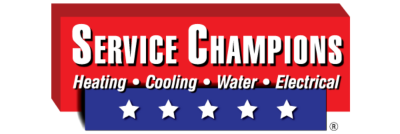Annual Furnace Maintenance Checklist

February 16, 2016
Regular furnace maintenance is usually recommended to ensure proper functioning of the unit as well as improved efficiency. While there are several things you can do on your own for proper functioning of your furnace, annual furnace maintenance should be dedicated to a heating expert, as they are able to check every single detail and perhaps fix any potential problems before it is too late.
Annual furnace maintenance is especially critical ahead of winter because this is when the furnace will be needed the most. If you have scheduled furnace maintenance by your appointed technician, you will do well to familiarize yourself with a checklist of the tasks that the heating professional will perform.
Here are some of the most important tasks that are mandatory for your HVAC contractor to perform during maintenance:
- Adjust and clean the pilot light and assembly if necessary. Weak or dirty pilot lights are likely to put out the light thereby resulting in a shutdown of the furnace.
- Inspection of the gas lines to check for possible leaks or manifold pressure and correcting them.
- Looking for lint or other debris that may be lodged in the combustion blower.
- Inspection and cleaning of the ignition system as well as safety control to be sure they are functioning properly.
- Inspection of the control box and controls to ensure the wiring and connections are done correctly.
- Removing, cleaning and adjusting the burner assembly and burners. Dirty burners often result in poor combustion and this can shorten the life of your unit.
- Listening for any abnormal or strange noises that are indicative of a problem within the furnace.
- Inspection of the heat exchanger and the heating elements of the furnace for any deterioration and cracks naturally occurring with age
- Cleaning and adjusting the fan switch to ensure that it cycles properly while conserving energy.
- Inspection of the flue pipe for any leaks or signs of corrosion, proper attachment and dislocated sections. Where necessary, a replacement may be recommended by your technician.
- Inspection of the combustion air openings to make sure they are not blocked or restricted.
- Recording data about the performance and temperature of the furnace.
- Securing any loose panels
- Inspecting and adjusting pulleys and belts to ensure there is optimal airflow and ultimately high efficiency. A replacement may be recommended where there are cracked belts.
- Lubrication of bearings and motors to reduce friction and keep the furnace operating at optimal levels.
- Replacing the air filter and where possible teaching you how to replace it so you can do it on your own. Some manufacturers recommend that the furnace be replaced at least once every month especially during the heating season.
- Examining and recording the amperage (amps) and voltage of the condenser fan motors, compressor as well as blower motor.
- Inspection and calibration of the thermostat ensuring that the settings and temperature are set as desired. The HVAC technician may take you through the process of operating the programmable thermostats if you request them to ensure that the furnace does not keep your house warm when you are not at home.
- Checking the vents to ensure they are working well.
After the Inspection
When the HVAC technician has completed the inspection of your furnace, they will give you a report on your system detailing the replacements and repairs that are recommended. Although these recommendations can appear like frivolous expenses, they are very important because they will not only prevent expensive future repairs but can also extend the life of your furnace. If you are not sure whether you should follow the recommendations or not, be sure to get a second opinion from a second professional heating expert.
It is important to ensure that you leave all repairs, replacements and maintenance to a certified HVAC contractor. This is especially important where the furnace is under warranty. Do not hesitate to refer to the warranty to get more details on the parts that you can use, professional services as well as the do-it-yourself tasks to ensure that you do not accidentally void it.
One of the most important benefits of having your annual furnace maintenance is provision of safety. This is because gas leaks as well as improper oil and gas connections can pose a hazard. When a furnace has worn, dirty or misaligned components there may be need for more repairs in the future even as the furnace’s functionality deteriorates.
Annual maintenance of your furnace will extend your heating system’s life. If you suspect the need for furnace repair, schedule a furnace maintenance appointment with Service champions technicians and we will be there to fix it.
